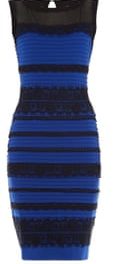Phrases and words that link negativity with blackness and positivity with whiteness – such as “black mood”, “dark times” or “whiter than white” – reinforce racist connotations and should be avoided, an anti-racism initiative has recommended.
Reframing Race has put together a report titled Contains Strong Language to equip anti-racism and racial inequality campaigners with the words that have proven most effective in persuading people of the “harm and structural nature of racism”.
The guide says associating whiteness with purity, cleanliness and goodness, and blackness with evil and destruction serves to “reinforce harmful tropes and the constructed racial hierarchy in which ‘black and minoritised’ people are pushed to the bottom”.
It also suggests using images or visual descriptions that apply only to white people – such as “blushing red”, “ashen faces” or “lips turning blue” risks othering black or minoritised people and should be avoided.
The report says avoiding such terms would help to ensure that “messaging is inclusive and life-enhancing”.
Other recommendations include avoiding the phrase “white working class” and rather using “multi-ethnic working class” or “working-class people of all ethnicities” because the use of the former wrongly excludes black and minoritised people from the class group.
It also suggests avoiding the use of the term “wealthy elite” and rather saying “the powerful few” as the former phrase can trigger antisemitism and feed the conspiracy theories of far-right white nationalists. Instead of using the word “racism”, campaigners should talk about the “ideology of racism” or the “practice of racism” as overuse of the standalone term racism without additional information or context can create an “unavoidable fog”.
Other recommendations including referring to ethnic minority people rather than ethnic minorities as the latter term is dehumanising.
Dr Sanjiv Lingayah, the director of Reframing Race, a non-profit research-based initiative, and co-author of the report, said: “The conversation on racism is stuck. With our trailblazing research we have been able to show how different messages on race and racism affect a mainstream audience.
“The upside is that new ways of talking about racism can lead to new ways of listening. This guidance provides a foundation from which advocates can be confident they are contributing positively to discussion, avoiding pitfalls and tropes, and moving others towards an anti-racist position.”
after newsletter promotion
A report by Reframing Race published last year found one in five people in England think that some races are born less intelligent than others, four in 10 people in England think that some ethnic groups are naturally harder working than others and three in 10 people in England think that someone’s race tells you something about their character.
Nina Kelly, co-author of Contains Strong Language, added: “Many well-meaning people, including journalists, who want to contribute to an anti-racist future feel unsure about what words to use. Contains Strong Language provides guidance based on sound principles and robust research.
“Meanwhile, anti-racist activists usually know what they want to say, but will also benefit from learning which messages are most likely to bring people with them, according to the evidence.”
Join the exciting world of cryptocurrency trading with ByBit! As a new trader, you can benefit from a $10 bonus and up to $1,000 in rewards when you register using our referral link. With ByBit’s user-friendly platform and advanced trading tools, you can take advantage of cryptocurrency volatility and potentially make significant profits. Don’t miss this opportunity – sign up now and start trading!






Recent Comments